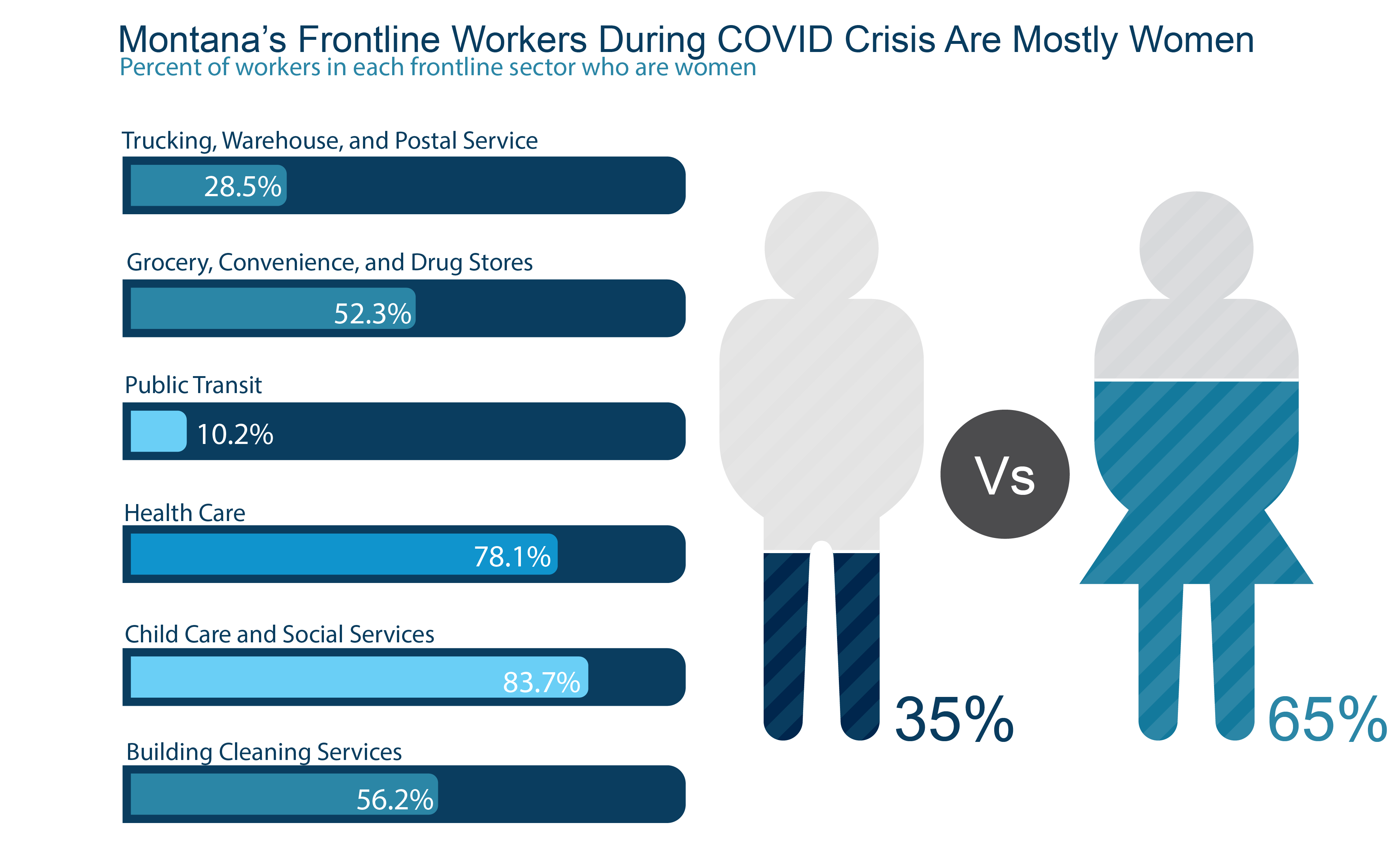Montana’s Frontline Workers Are Mostly Women and People of Color
Apr 21, 2020
By Tara Jensen
In Montana and across the world, the coronavirus pandemic is keeping many of us safely in our homes. Frontline workers are making this protection possible, providing deliveries, healthcare, child care, social services, and stocking stores with food and necessities. Frontline workers have always played a critical role in our communities, but as the streets are quieted from the typical hustle and bustle, we can see more clearly who is making sure that families can buy food, children are taken care of, and seniors and people with disabilities continue to receive daily care. As a result of historical oppression, like policies that have kept women and people of color out of university systems, and current day discrimination,
frontline workers are often disproportionately women and people of color.
In Montana, over 100,000 workers are frontline workers, which is about the population of Billings, Montana. They include grocery store clerks, nurses, cleaners, warehouse workers, child care workers, home health aides, and bus drivers, among others. They were essential before the pandemic hit, but today there is a bright light on their importance. However, these workers are often overworked, underpaid, under protected, and under appreciated. Due in part to historical racial and gender discrimination, frontline workers in Montana are more likely to be women, American Indian, or over the age of 50. Women account for 47 percent of all workers, however they make up
65 percent of frontline workers. Many frontline workers also have family care obligations, as over a third, in Montana and nationwide, have minor children at home.
Many frontline workers support themselves and their families on very low incomes. Montana should prioritize the needs of frontline workers during this moment of crisis (and moving forward), including adequate compensation, expanding as access to health care, child care assistance, and paid sick and family leave. Strengthening economic security for frontline workers will recognize this critical role in our economy and leave all of us better equipped to face downturns in the future.


